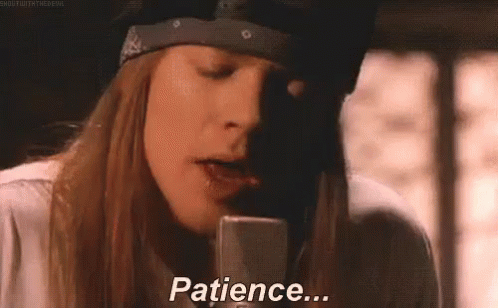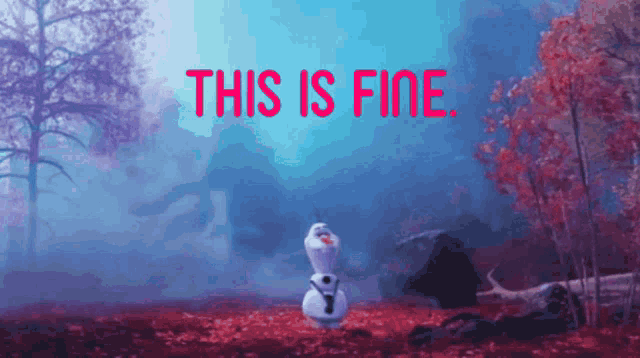Shanghai Disneyland will close in effort to contain coronavirus
Posted
Shanghai Disneyland will close its gates on Saturday in an effort to stop the spread of a new SARS-like virus that has killed 26 people and sickened at least 881, primarily in China. It’s not known when the theme park may reopen.
Read more from Gizmodo.
Related parks
Asymptomatic spread of coronavirus "very rare"
Good thing we just ordered all those masks and cleaning supplies at work.
I almost shared that, but to me it's mostly about semantics.
Asymptomatic is different than presymptomatic. Presymptomatic people (those currently asymptomatic, but who will show symptoms) spread the virus quite efficiently.
It doesn't totally negate the masks and cleaning, but it does change understanding and numbers on spread and risk.
Yeah, that report doesn't have very satisfying context. This advice is based on what? Then it says that asymptomatic spread still happens.
No wonder people can't be consistent in their action.
Jeff - Editor - CoasterBuzz.com - My Blog
In the end, that report just says to me that testing and tracing is the path forward, which I've thought (as others here have) since the first days of this whole mess. While potentially cause for optimism (depending on your reading of it), it doesn't change much for the US. Our testing and tracing is years behind the sophistication of the countries that likely participated in that study (Germany, South Korea, etc...). It varies wildly from state to state and seems non-existent at the federal level.
I'm firmly a believer that we should be spending more time and money developing a testing and tracing program that can scale as needed rather than putting all of our eggs in the vaccine basket. The latter might solve the issue with this virus for some people for some period of time while the former provides a framework to mitigate this pandemic for everyone while also preparing for what the future brings. The obsession with fast-tracking a vaccine just seems so short-sighted to me. The logistics of administering it in the US alone, no less to the world, means you're in this mess for years to come.
Epidemiologists weren't saying when they thought "we" will be doing "normal" things. Its their personal opinions as to when they believe they will be doing those things. And its based on how they expect the pandemic and public response to play out. About 5,000 of those who were invited to participate didn't for one reason or another. 301 joined a letter saying the multiple choice format based only on calendar time limited their ability to provide expert opinions. Maybe the Times had a given result in mind and didn't want expert opinions to get in the way. Factual but not neutral after all.
A coworker showed me this today... I think this sums up COVID perfectly:
https://www.facebook.com/story.php?story_fbid=10163377955105023&id=...o&d=n&vh=i
The WHO needs to be more careful with their wording. Anyhow, the hair stylist who exposed 90 people while sick with Covid-19 didn't infect anyone. Pretty interesting unintended case study right there. Masks and social distancing might actually work?
I'm sure masks and social distancing do work to some extent. As bad as the infection rates have been, they certainly could be much worse.
Jeff - Editor - CoasterBuzz.com - My Blog
eightdotthree said:
The WHO needs to be more careful with their wording. Anyhow, the hair stylist who exposed 90 people while sick with Covid-19 didn't infect anyone. Pretty interesting unintended case study right there. Masks and social distancing might actually work?
It also may have to do with the recent development (peer reviewed?) that apparently asymptomatic people (distinct from presymptomatic people) can't transmit. The article doesn't say whether the stylist eventually developed symptoms.
Hobbes: "What's the point of attaching a number to everything you do?"
Calvin: "If your numbers go up, it means you're having more fun."
The WHO person (sounds like a Dr. Seuss thing) said her comments were taken out of context, which frankly I blame the poor reporting that didn't ask any follow up questions, or worse, the people who just report what others have reported.
India is in a really bad spot right now, and Brazil's fascist leader is pretending everything is fine.
Jeff - Editor - CoasterBuzz.com - My Blog
Here's a better story about the WHO person who wasn't speaking on behalf of WHO policy that the press did a bang up job getting wrong:
https://arstechnica.com/science/2020/06/who-butchers-asymptomatic-c...hey-meant/
Jeff - Editor - CoasterBuzz.com - My Blog
So, one of the fundamental problems in the world of health, or mental health, or just with regards to science in general is what is called "Media Simplification". (OK thats not an official name but just what I call it) There are two parts to this.
1) The media (in general...yes I realize there are very different outputs, but I'm talking your mainstream media like networks, etc.) will take any scientific finding that is even remotely sensational and run with it like it's a new "finding". One of the best cases of this is the classic autism/vaccine "study". Depending on how old you are, you might forget that outlets like 20/20, Nightline, etc. ran with it and freaked the country the hell out about vaccines. This led to protests, anti-vaccine rallies, Jenny McCarthy etc....and where we are today.
Off of one study. With 12 kids in it. Which turned out to be fake.
Which leads to part 2:
The public, by and large, doesn't understand science. At all.
One study or finding (or even two) means bull****. Nothing. It takes replication after replication after replication to even get close to a "truth"....now combine that with our (understandably) current state of impatience-and-just-wanting-this-****ing-thing-over mental state, and people will run with anything.
Painting my deck today, I was listening to 92.3 (Cleveland...I believe Jeff knows this station well)...it's now sports-talk radio, and they were talking about how we all need to have "no faith" in the WHO or the CDC because what we hear changes day after day after day. To a degree I get the emotion behind that sentiment, but to a further point propagating the idea that we can't trust the scientists behind these findings is even more dangerous than the virus itself.
Science is a verb. If things change quickly that's a good thing, in a way. That means a lot of smart people are all working on something no one understands.
But until 50 studies start to show the same thing, don't get too excited.
Which leads to another part of truly getting science...it takes a lot of...well...

Promoter of fog.
Closed topic.

